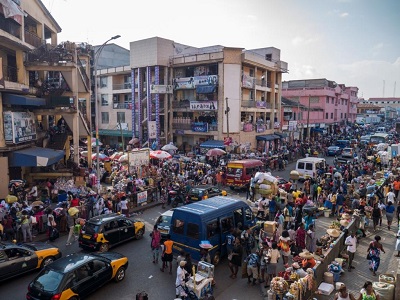Accra’s most vulnerable residents were failed during COVID – the government didn’t understand their realities
Containment measures, such as the lockdowns introduced to stop the spread of the COVID-19 virus, had devastating consequences for vulnerable urban populations globally.
In response, public, private, and civic organisations responded with various interventions to soften the impact, especially on the most vulnerable. Support was given in the form of cash transfers, food delivery, and personal protective equipment. In Ghana, government support also included tax waivers, and subsidies for water, electricity, and other household utilities.
Government officials claimed that the interventions reduced the impact of the pandemic on urban residents. And so we sought to analyse how COVID-19 related support from families, friends, government agencies, faith based and non-governmental organisations helped reduce the pandemic’s impact on people. We looked at the impact on four aspects of their capital: financial, human, social and physical.
Our study in the Adenta municipality of the Greater Accra region found that the interventions had limited impacts. We also found that COVID-19 related support only reduced the negative impact of the pandemic on financial capital, and not on the other forms of capital. We discovered that building the residents’ capacity to bounce back after a pandemic would have required comprehensive support, and interventions that were interconnected.
Based on our findings, we recommend that decision makers should anticipate, prepare and plan for risks by focusing on the multiple factors that expose poor people living in cities to severe impacts. This should also involve collaborating with vulnerable groups to draw on their knowledge and experiences.
The everyday life of the urban resident has many aspects. These interact to create and compound their vulnerabilities to a wide range of risks. We suggest that this complex challenge should be an opportunity to rethink planning for and responses to future risks.
The realities of poor people in cities
Accra, the capital of Ghana, is home to about 5.5 million residents. The city is characterised by poor planning, widening income inequalities and slow economic growth.
Most households, especially those in informal settlements, are exposed to poor environmental and economic conditions. City authorities are grappling with high unemployment, urban sprawl and pressure on public amenities.
The first two cases of the virus were recorded in Ghana on 12 March 2020. The virus spread quickly across the country, with Accra recording the highest number of cases.
For our study, we interviewed 400 respondents in the Adenta municipality. It is a densely populated area within the capital. We asked residents to indicate their agreement with a series of statements such as “my accessibility to food was impacted by COVID-19”, “my standard of living significantly fell during the COVID-19 pandemic” and “I received support from government or religious organisations during the COVID-19 pandemic”.
The responses suggest that the pandemic affected residents’ access to economic activities and opportunities to enhance their well-being. For example, most residents were unable to engage in economic activities. This led to a drastic reduction in their already irregular incomes. Others reported that the lockdown impeded access to regular visits to friends and relatives to express support during sickness or even bereavement. For residents, this was a huge psychological burden.
A package with no punch
Our findings point to key weaknesses in the various interventions.
Firstly, they did not help people when it came to social, physical and human aspects of everyday urban living. For some residents, the inability to continue educational and skill acquisition programmes was due to cost and limited online learning options. This affected their human capital, truncating initial progress.
Secondly, the most vulnerable people weren’t always targeted. This was due to shortcomings in the way support was given. It was also due to the way beneficiaries were selected and how distribution took place.
For example, politicians and urban bureaucrats publicly claimed and highlighted the influential role of interventions by public authorities and their partners. However, our survey showed that people on the ground actually viewed the interventions as quick fixes. Some residents reported that while free food and cash transfers were necessary, they didn’t address the root cause of their impoverishment and deprivation. They wanted functional social safety nets and access to secured jobs with regular incomes.
Also, household utility subsidies were targeted at lifeline consumers (those considered very poor) who barely made use of significant amounts of water and electricity. Consequently, these interventions appeared to have limited real impact. One community leader remarked:
We don’t need financial tokens like one-time cash transfer but other important aspects of our lives that make it possible to make our own money: productive opportunities, access to social services such as affordable and quality public transport, health care, and for those of us without high education to acquire new employable skills.
Towards multi-dimensional approaches to future risks
We outlined one approach that we argue could be beneficial – to develop community based resilient planning platforms as avenues for action oriented collaboration among public, civil society and community groups. This would help ensure that responses to current and future pandemics or uncertainties were aligned with the multiple aspects of urban living.
Stephen Leonard Mensah, PhD Student at the University of Memphis, contributed to this study.








